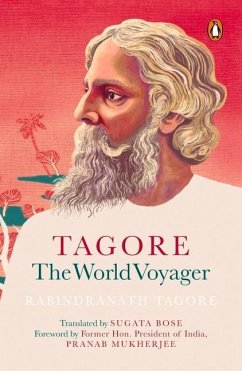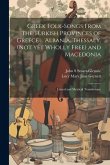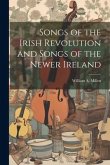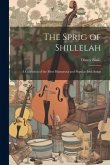Tagore's beautiful songs now available in English translation. For long considered untranslatable, Tagore's songs express most profoundly his romantic and religious perceptions. Prof. Bose aims to convey the artistic value of Tagore's songs beyond the limits of his province. The first part, 'Oceanic Songs', introduces the lyrics and tunes of the songs to a foreign audience through a narrative of Tagore's travels during which he communicated with the wider world. Since Tagore wrote only forty of his nearly 2500 songs on his journeys abroad, the second part presents a selection of 'songs in five genres'. This book endeavours to reach Tagore's songs to people beyond the borders of India, transcending the barriers of language on the wings of music.
Hinweis: Dieser Artikel kann nur an eine deutsche Lieferadresse ausgeliefert werden.
Hinweis: Dieser Artikel kann nur an eine deutsche Lieferadresse ausgeliefert werden.








